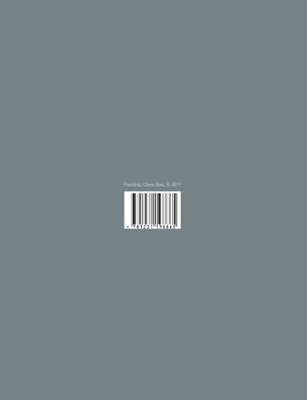A text-book of North-Semitic inscriptions; Moabite, Hebrew, Phoenician, Aramaic, Nabataean, Palmyrene, Jewish
Price:
$19.99
Availability:
Not Available - stock arriving soon
Product Information (more info)
CERTAIN CONTENT THAT APPEARS ON THIS SITE COMES FROM AMAZON SERVICES LLC. THIS CONTENT IS PROVIDED 'AS IS' AND IS SUBJECT TO CHANGE OR REMOVAL AT ANY TIME.
Manufacturer Details
This historic book may have numerous typos and missing text. Purchasers can download a free scanned copy of the original book (without typos) from the publisher. Not indexed. Not illustrated. 1903 Excerpt: ...(?) resident in Carthage, but what the words exactly mean is not known. The name Ciyc possibly =0 gales1, and may refer to the ravines and passes of the hills in the neighbourhood of Cirta, which stood on the S. of the range which stretches across the country west of Carthage. This country was known to the Romans as the land of the Massylii, a Numidian kingdom, one of whose kings, Massinissa, figured prominently in the Second Punic War (218-201 B. C), and died (148 B.c) just before the destruction of Carthage. The seat of his kingdom was Cirta; but that the DIN "iD of these inscrr. was a predecessor of his we cannot say. L. 4. An interesting variation of the formula occurs in Costa 6 3 f. "P3 M b DJU DU tCT3 NP yDB 3 i. e. 'because he heard his voice (and) blessed him on a good day, on the day when he blessed'; cf. Is. 49 8. 52. Thugga. Brit. Mus., Semitic Room nos. 494-495. bs p ntjafi' p ptaMB rcraB i mnmny p p-way M3ne wan a ht p noDS' p pDx p-to? 3 pD-11. prat »n.... tbff mnai 5 pa.. paw paa.. hicb Tb Dentin 6 '33 p 'fcfll y?3 p BSB hmv D3D3n 7 1 In a Lat. inscr. of 48-49 A. D. lately excavated at Thugga the sentence occurs: huic senatus et plebs ob merita patris omnium portarum sententis ornam(enta) sufetis gratis decrevit. Possibly the Pun. for portat would be Oti-sj, as in these inscrr. from Cirta. Cl.-Gan. Rec. iii 335 ».; Lidzb. Epk. i 5a. 'Strabo p. 706ed. Mull. Kiprari Iotiv iv faaoyaiq, rh Maoavdooov «a2 Tair l£f)s 5,a&iwv fiaaikauv, n6it titpKtor&Ti) ml KaTtaKfvaaftivr xaAwt Toft iraai, «ai /uiAiara i»o Minima K.t.a. Polyb. xxxvii 3. This inscr. is bilingual, Punic and Berber. It was written on the E. side of a mausoleum discovered among the ruins of the ancient city of Tucca (Thugga) in Eastern N...








